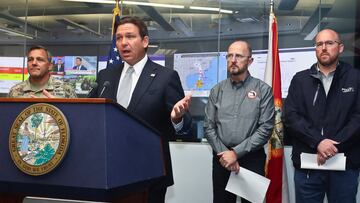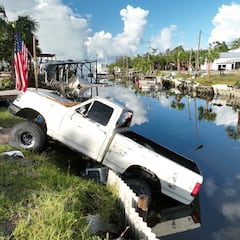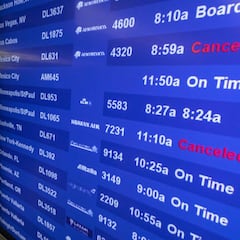How declaring a state of emergency helps Florida respond to hurricanes and tropical storms
Emergency declarations are a critical measure the Florida Governor can take during or in anticipation of a natural disaster like Hurricane Milton. What powers do these orders include?


Governor Ron DeSantis has declared a state of emergency for 51 of Florida’s 67 counties in anticipation of Hurricane Milton’s approach. This proactive measure is a crucial step in Florida’s hurricane preparedness and response strategy, allowing the state to take special measures it would not usually be able to undertake.
The basics of emergency declarations in Florida
Implementing an emergency declaration at the state and federal level grants governments additional powers to prepare the ground for an impending crisis or after one has occurred.
Who makes an emergency declaration?
Under Florida law, the state’s Governor is vested with the power to make an emergency declaration.
Governor DeSantis Provides Update #6 on Hurricane Milton in Ocala https://t.co/D1Yv9Rzt7S
— Ron DeSantis (@GovRonDeSantis) October 8, 2024
How long do they last?
These orders last up to 60 days unless rescinded, amended, or extended by the Governor.
Protections offered by an emergency declaration
The emergency declaration is critical for the state’s response to a looming or current crisis. The order serves to “active that emergency mitigation, response, and recovery” process the state will undertake at all levels of governance, including those where collaboration across jurisdictions is required. Additionally, it dictates how “supplies, equipment, and materials” will be deployed and by whom. This includes control over the state’s National Guard troops. However, the law states that “to the greatest extent practicable, the Governor shall delegate or assign command authority by prior arrangement embodied in appropriate executive orders or rules.” Such determinations of chain and command can ensure that the forces can more easily be sent to where they are most needed when demand for their support extends over several areas.
These orders are also necessary for counties to impose evacuation orders on all or subsets of their populations. To support residents as they evacuate, the order can “prescribe routes, modes of transportation, and destinations.” As has been seen during previous storms, at times, the state opts only to allow traffic on a freeway to move in one direction to ensure that those looking to get out of harm’s way are not trapped by hours of traffic as a disaster looms.
The shelter status map at https://t.co/Yaj0EnvDvj can tell you:
— FL Division of Emergency Management (@FLSERT) October 8, 2024
📍 Shelter location
🐕 If it's pet friendly
🏥 If they can accommodate health needs
The time is NOW to find a free shelter in your area & finalize your prep before #Milton. Visit https://t.co/nfDMe4HFPM for more. pic.twitter.com/MAL3k6yuvq
Related stories
Once an evacuation order has been imposed, the state can limit access to the area.
One critical component of an emergency declaration for residents is that businesses are prohibited from price gouging. However, during this most recent crisis, residents are voicing concerns online about their ability to evacuate, hampered by high hotel prices in cities where officials are encouraging those in danger to travel.


Complete your personal details to comment